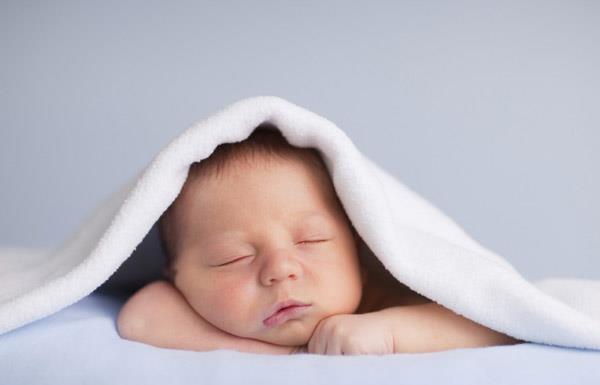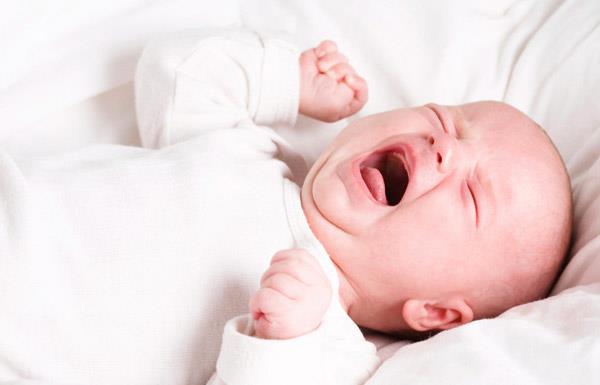Children who do not sleep well or cry, disturb the sleep of the whole family are very normal when they were young. If it does not stem from the pathological cause, the mother does not need to worry about this phenomenon.
To view this video please enable JavaScript, and consider upgrading to a web browser that supports HTML5 video
1 week helps babies sleep better (QC)
A good sleep schedule will help babies learn the habit of deep sleep, good sleep at night, and at the same time help mothers get rid of exhaustion from having to stay up at night to comfort their babies.
see more
content
Children under 3 months old often wake up
Stages of a sleep
Calm down when babies cry at night
The situation of babies not sleeping well or fussy about crying can be viewed positively as follows: Although newborn babies sleep almost all day and night, they usually wake up 2 hours after feeding because they are hungry. Crying is seen as an indicator of a child's development in the first few months of getting used to real life.
After giving birth, babies tend to cry a lot in the first 2-3 weeks and reach "milestone" in weeks 6-8. After that, the baby will reduce fussy and crying, about 4 months. Babies will often cry at night because this is a time to relieve stress in a long day.
Children under 3 months old often wake up
Whether bottle-feeding or breast-feeding, babies from birth to 1 month will sleep around the clock and only wake up to feed. Due to still being used to the space in the womb, the baby cannot distinguish day and night. So many babies sleep during the day and wake up more at night. This is a normal physiological phenomenon if the child has no related symptoms.

The baby does not sleep well or fussy if it is not due to a medical problem, do not worry too much
Babies who sleep too much, sleep deeply in the early stages of birth are also not good. Although it is not necessary to wake a newborn to breastfeed, it should not be allowed to sleep for more than 3 hours without breastfeeding. After 3 months and 10 days, babies will start sleeping all night from 6-8 hours.
Many studies also show that the child's brain, even at 18 months, is only 25% more developed than the adult brain, the rest are in the shaping stage. Therefore, the sleep of children under 18 months is often fluttering and similar to the way of life of the baby when he is a fetus.

Revealing 26 great ways to help your baby sleep Don't miss the following 26 great ways to help your baby sleep!
Stages of a sleep
Children, as well as adults, also have sleep divided into many different stages. Depending on the stage, the baby does not sleep well or wake up and move.
1. Fast sleep (REM): Explained as sleep with rapid eye movement. In this short nap, the child will dream and the eyes will move quickly in the front and back. Even though young children sleep about 16 hours a day, about half the time is REM sleep. That is, the baby only sleeps about 8 hours deep.
2. Non-REM sleep: This type of sleep without rapid eye movement has 4 stages:
Stage 1: Sleepy. Common symptoms are drooping eyelids, blinking continuously, drowsiness.
Stage 2: Dozing off. Children can still move, startled, twisted.
Stage 3: Deep sleep.
Stage 4: Sleep very deeply.
During the first few months, your baby may wake up from a deep sleep to dozing off and may find it difficult to return to sleep. Specifically, more than 20:00 - 22:30 at night, the baby can sleep very deeply and will wake up 2 times in the second stage. short wake-ups. From 5am to 6am, baby sleeps deeply again. This phenomenon is very normal, you don't need to worry too much!
At 6-10 months of age, a baby's sleep can be influenced by many different factors, such as health status, daily habits or teething ...
Calm down when babies cry at night
The fact that the baby wakes up at night and fusses is that the mother should not be too stressed or worried. The problem to be resolved now is to make sure that the baby sleeps well afterwards.

The baby's cries are sometimes just to relieve the stress of the day
If before 22:00, the baby is sleeping but startles to wake up, cry or scream, it is likely that it is influenced by some external factor that makes the baby feel insecure or panic. For example, noisy talk, too loud TV sound ... Just find a quiet space, your baby will lull himself to sleep very quickly. If the baby twists or stands on the crib, the mother gently puts the baby back, should not hold, lull or talk to the baby because actually the baby is still sleeping.
A 2011 study of remarkable nighttime crying often showed that: Children don't know how to stop crying until they are forced into a framework. Getting children obediently continued to go to bed at night will help parents feel more secure and comfortable, but invisible, in general, increase discomfort in babies when they wake up.

Decoding the baby's cry Not just tired, hungry or nappy, your baby's cry also carries many other meanings. If you are a first-time mother, you may need a little "help" to understand exactly what your baby is trying for.
Putting your baby to sleep at night means that he or she will go through a new cycle: Feeling comfortable but then inhibited. To a certain extent, the baby will express those inhibitions with extreme reactions such as crying loudly.
Babies who do not sleep well and are fussy can be understood as a natural physiological phenomenon. Even if you feel annoyed about these times, you should practice adapting as well as your child is adjusting to a new life.















